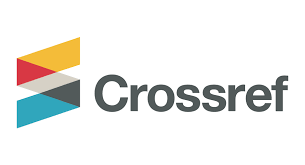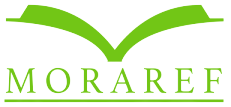Peran Pemerintah dalam Pemenuhan Hak untuk Mendapatkan Pekerjaan bagi Penyandang Disabilitas Berdasarkan Undang-Undang Nomor 8 Tahun 2016 tentang Penyandang Disabilitas
 Abstrak views: 9
,
Abstrak views: 9
,
 PDF (English) downloads: 4
PDF (English) downloads: 4
Abstrak
Artikel ini membahas mengenai peran pemerintah dalam menjamin hak penyandang disabilitas untuk mendapatkan pekerjaan yang sesuai dengan ketentuan Undang-Undang Nomor 8 Tahun 2016 tentang Penyandang Disabilitas. Dengan menggunakan metode kualitatif dan pendekatan normatif, penelitian ini mengupas dua fokus utama yaitu, bagaimana hak-hak tenaga kerja penyandang disabilitas diatur dalam undang-undang, serta kontribusi pemerintah dalam mewujudkannya. Tujuan dari adanya penelitian ini adalah untuk memahami pengaturan hukum terkait hak kerja penyandang disabilitas dan langkah-langkah pemerintah dalam mengimplementasikannya. Hasil penelitian menunjukkan bahwa hak atas pekerjaan layak adalah hak semua warga negara, seperti diatur dalam UUD 1945, Undang-Undang Nomor 39 Tahun 1999 tentang Hak Asasi Manusia, serta Undang-Undang Nomor 13 Tahun 2003 tentang Ketenagakerjaan. Ratifikasi Konvensi Hak-Hak Penyandang Disabilitas pada tahun 2011 melalui Undang-Undang Nomor 19 Tahun 2011 juga mendorong penggantian Undang-Undang Nomor 4 Tahun 1997 tentang Penyandang Cacat dengan Undang-Undang Nomor 8 Tahun 2016, yang lebih relevan dan responsif. Penelitian ini menyoroti pentingnya peran aktif pemerintah dalam memastikan penyandang disabilitas dapat mengakses pekerjaan yang layak. Contohnya terlihat dari kebijakan di kota Yogyakarta dan Padang, yang menunjukkan upaya konkret dalam melindungi dan memenuhi hak tersebut. Kesimpulan yang dapat diambil yaitu bahwa peran pemerintah sangatlah penting dalam memastikan hak-hak tenaga kerja penyandang disabilitas benar-benar dapat terwujud.
##plugins.generic.usageStats.downloads##
##submission.copyrightStatement##
##submission.license.cc.by-sa4.footer##Publishing your paper with As-Shahifah : Journal of Constitutional Law and Governance means that the author or authors retain the copyright in the paper. As-Shahifah granted an exclusive non commercial reuse license by the author(s), but the author(s) are able to put the paper onto a website, distribute it to colleagues, give it to students, use it in your thesis etc, so long as the use is not directed at commercial advantage or toward private monetary gain. The author(s) can reuse the figures and tables and other information contained in their paper published by As-Shahifah in future papers or work without having to ask anyone for permission, provided that the figures, tables or other information that is included in the new paper or work properly references the published paper as the source of the figures, tables or other information, and the new paper or work is not direct at private monetary gain or commercial advantage.
As-Shahifah journal provides immediate open access to its content on the principle that making research freely available to the public supports a greater global exchange of knowledge. This journal is licensed under a Creative Commons Attribution-ShareAlike 4.0.This license lets others remix, tweak, and build upon your work non-commercially, and although their new works must also acknowledge & be non-commercial, they don’t have to license their derivative works on the same terms.
As-Shahifah journal Open Access articles are distributed under this Creative Commons Attribution-ShareAlike 4.0 International License (CC BY-SA). Articles can be read and shared for noncommercial purposes under the following conditions:
- BY: Attribution must be given to the original source (Attribution)
- SA: If you remix, transform, or build upon the material, you must distribute your contributions under the same license as the original.









